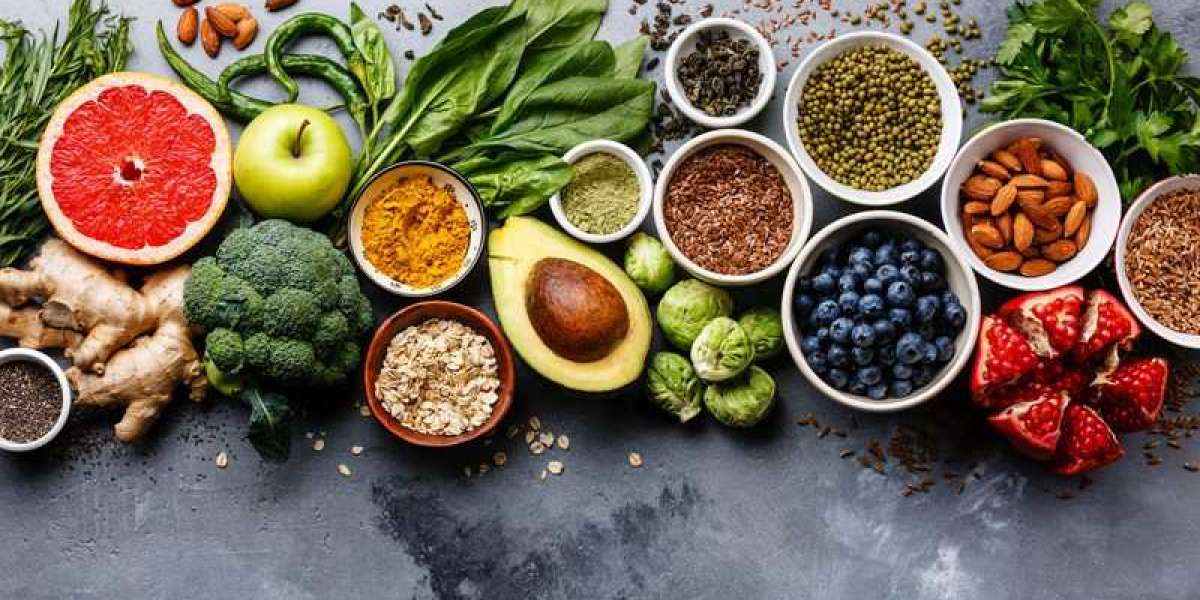Here are various foods that can aid in unclogging arteries and promoting heart health.
Fatty Fish: Fatty fish such as salmon, mackerel, and sardines are rich in omega-3 fatty acids, which have been shown to reduce inflammation and lower triglyceride levels. Regular consumption of fatty fish can help prevent plaque buildup and decrease the risk of arterial blockages.
Nuts and Seeds: Nuts and seeds like almonds, walnuts, flaxseeds, and chia seeds are excellent sources of healthy fats, fiber, and antioxidants. These components help reduce bad cholesterol (LDL) levels and promote the production of good cholesterol (HDL). Additionally, they contain arginine, an amino acid that improves blood vessel function.
Berries: Berries, including blueberries, strawberries, and raspberries, are packed with antioxidants, fiber, and phytochemicals. These compounds reduce oxidative stress and inflammation, thereby protecting against artery damage and improving cardiovascular health.
Leafy Green Vegetables: Leafy greens such as spinach, kale, and Swiss chard are abundant in nitrates, which aid in relaxing blood vessels, lowering blood pressure, and enhancing blood flow. Moreover, they are rich in vitamins, minerals, and antioxidants that contribute to arterial health.
Garlic: Garlic has been used for centuries due to its medicinal properties. It contains sulfur compounds that promote artery dilation, reduce plaque formation, and lower blood pressure. Incorporating garlic into your diet, either raw or cooked, can provide substantial benefits.
Turmeric: Turmeric is a spice known for its vibrant color and numerous health benefits. Its active component, curcumin, exhibits anti-inflammatory and antioxidant properties, helping prevent the buildup of plaque and reducing the risk of arterial blockages.
Avocados: Avocados are an excellent source of monounsaturated fats, which can help lower LDL cholesterol levels. They are also packed with fiber, vitamins, and minerals that contribute to arterial health and overall heart function.
Olive Oil: Olive oil, especially extra virgin olive oil, is a staple in the Mediterranean diet, and is renowned for its heart-protective benefits. It is rich in monounsaturated fats, antioxidants, and anti-inflammatory compounds that promote healthy arteries and reduce the risk of heart disease.
Tomatoes: Tomatoes are loaded with lycopene, an antioxidant that gives them their vibrant red color. Lycopene has been associated with reduced plaque buildup and improved arterial function. Cooking tomatoes or using tomato-based products enhances the bioavailability of lycopene.
Whole Grains: Whole grains, including oats, quinoa, and brown rice, are high in fiber and contain nutrients like magnesium and potassium. Fiber helps lower cholesterol levels, while magnesium and potassium contribute to maintaining healthy blood pressure and reducing the risk of arterial stiffness.
Pomegranates: Pomegranates are rich in antioxidants, particularly polyphenols, which have been shown to have anti-inflammatory effects and reduce oxidative stress in the arteries. Studies suggest that consuming pomegranate juice or eating fruit can improve arterial health by enhancing blood flow, reducing plaque formation, and lowering blood pressure.
Green Tea: Green tea contains catechins, which are potent antioxidants that have been associated with various cardiovascular benefits. Regular consumption of green tea has been shown to reduce LDL cholesterol levels, improve arterial function, and lower the risk of heart disease.
Citrus Fruits: Citrus fruits like oranges, grapefruits, and lemons are abundant in vitamin C, fiber, and flavonoids. These components help reduce inflammation, improve arterial function, and enhance the production of collagen, which is essential for maintaining the integrity of arterial walls.
Dark Chocolate: Dark chocolate with a high percentage of cocoa (70% or more) contains flavonoids called flavanols, which have been linked to improved arterial health. Flavanols promote the production of nitric oxide, which relaxes blood vessels, reduces blood pressure, and enhances blood flow. However, it's important to consume dark chocolate in moderation due to its calorie and sugar content.
Legumes: Legumes, including beans, lentils, and chickpeas, are excellent sources of plant-based protein, fiber, and minerals. They have a low glycemic index and can help regulate blood sugar levels. Legumes also contribute to arterial health by reducing LDL cholesterol levels and promoting the growth of beneficial gut bacteria.
Walnuts: Walnuts, in addition to being a good source of healthy fats, are rich in antioxidants, fiber, and plant sterols. These components have been shown to improve arterial function, reduce inflammation, and lower LDL cholesterol levels. Adding a handful of walnuts to your diet as a snack or incorporating them into meals can be beneficial for heart health.
Ginger: Ginger has long been used for its medicinal properties and is known for its anti-inflammatory and antioxidant effects. Studies suggest that ginger may help reduce cholesterol levels, prevent plaque formation, and improve arterial function. Adding fresh ginger to your meals or enjoying ginger tea can be a flavorful way to incorporate it into your diet.
Beetroot: Beetroot is rich in nitrates, which are converted into nitric oxide in the body. Nitric oxide helps relax and dilate blood vessels, improving blood flow and reducing blood pressure. Consuming beetroot or beetroot juice has been associated with improved arterial health and enhanced exercise performance.
Cinnamon: Cinnamon is a spice that has been shown to have anti-inflammatory and antioxidant properties. It may help lower cholesterol levels, reduce blood pressure, and improve insulin sensitivity. Adding a sprinkle of cinnamon to your oatmeal, yogurt, or smoothies can be a tasty way to incorporate it into your diet.
Watermelon: Watermelon is not only a refreshing and hydrating fruit but also a good source of lycopene and other beneficial plant compounds. Lycopene, similar to tomatoes, has been associated with improved arterial function and reduced plaque buildup. Enjoying watermelon as a snack or in salads can be a delightful way to include it in your diet.
Conclusion
A diet rich in foods that promote artery health can have a positive impact on cardiovascular well-being by reducing inflammation, improving blood flow, lowering cholesterol levels, and preventing plaque formation. Incorporating a variety of these foods into your meals and snacks can contribute to unclogging arteries and maintaining a healthy heart. Remember to combine a heart-healthy diet with regular physical activity and other lifestyle modifications for optimal cardiovascular health.




Nah Omie 38 ш
Learning never ends 😌